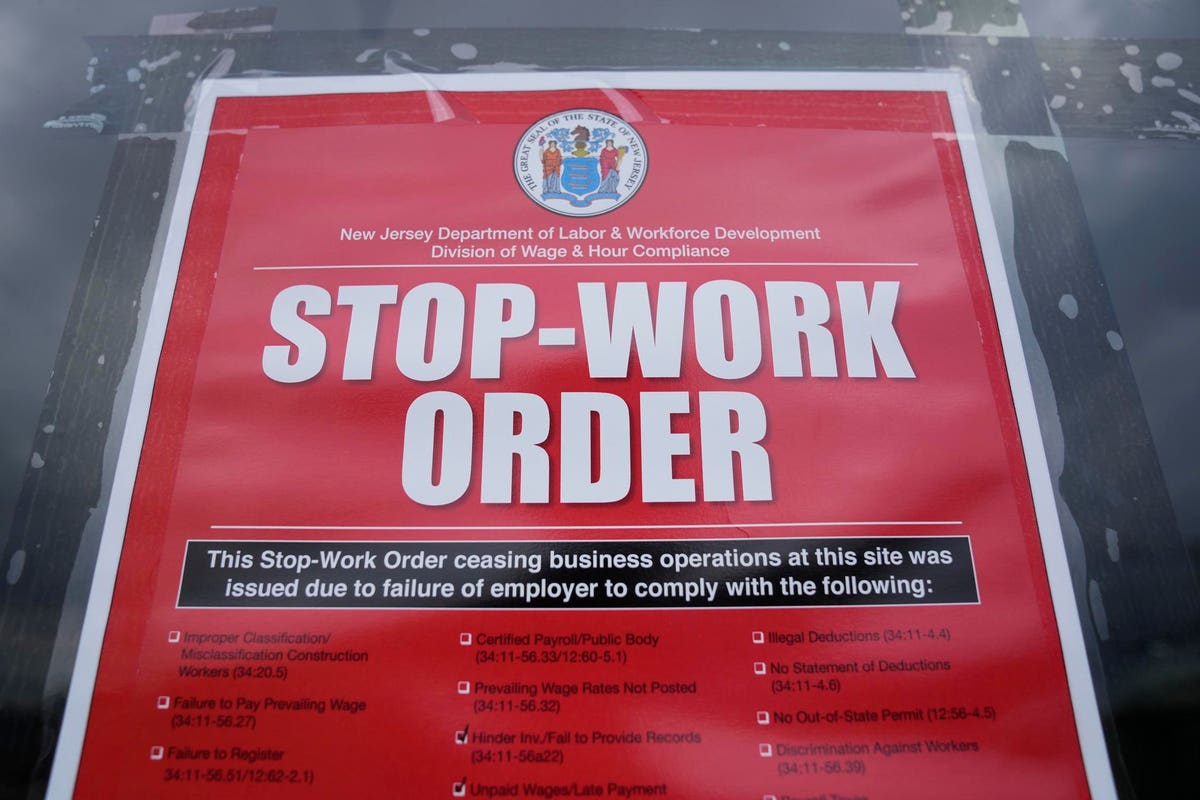The rotisserie chicken has stopped turning in all but a handful of New Jersey outlets at Boston Market after it was hit this week by claims of workers’ rights violations at the fast-casual restaurant chain.
A complaint filed with the New Jersey Department of Labor and Workforce Development by a Boston Market Hamilton store worker proved the catalyst for stop-work orders issued at 27 of 30 New Jersey locations.
NJDOL said in a release issued August 14 that it had determined 27 stop-work orders to Boston Market restaurant locations N.J.-wide after it claimed to have discovered multiple violations of workers’ rights, including more than $600,000 in back wages owed to a total of 314 workers.
And with a shrinking estate, the labor stoppage blow is the last thing the chain needs after struggling to turn round its fortunes post-covid.
In its heyday, Boston Market had roughly 1,200 U.S. locations, but that number has plunged below 300, with most concentrated in the Northeast U.S. and Florida, plus some sites further west.
Once famous for serving rotisserie chicken, its widespread availability in supermarkets has hit the restaurant chain’s popularity and market share.
While Boston Market has attempted to respond by expanding its offer to include turkey, meatloaf and ham, to many customers its brand has remained largely synonymous with chicken.
Worker Raised Boston Market Concerns
The first public account of when problems began was November 2022, when a worker at the 70 Route 33 outlet in Hamilton, N.J. filed a complaint with the NJDOL’s Division of Wage and Hour and Contract Compliance.
Over the nine months following that initial complaint, nearly three dozen additional complaints have been received by NJDOL citing numerous Boston Market locations across the state.
The agency’s initial findings included citations for a mix of unpaid wages and late payments, hindrance of the investigation, failure to pay minimum wage, records violations, failure to pay earned sick leave, and failure to maintain records for earned sick leave.
NJDOL investigators assessed that back wages of $607,471 were owed to 314 workers, in addition to $1,214,942 in liquidated damages.
These findings were delivered to the parent company headquartered in Golden, CO, CEO Jignesh Pandya of Newtown, Pa., plus the company’s Ewing-based registered agent.
In all, Boston Chicken of NJ has been assessed an administrative fee by NJDOL of $182,241.30 and $549,500 in administrative penalties totaling over $2.5 million.
Landlord Dispute At HQ
The labor dispute adds to legal wrangles over the company’s headquarters building.
In May, Boston Market was ordered to pay almost $600,000 to the landlord of its long-time headquarters in Golden after defaulting on its lease and ignoring a lawsuit.
Judge Meegan Miloud ordered the company to pay $589,538 in back rent and fees to Boulder-based Tebo Properties, which owns the 14103 Denver West Parkway building that has been home to Boston Market since 1996.
Boston Market shrank its footprint there from 63,000 sq. ft. to 27,655 sq. ft. in 2019 but struggled to pay its $58,000 monthly rent during the pandemic, according to BusinessDen. While Tebo allowed it to defer payments until 2021, as the debt rose Tebo eventually sued Boston Market for the outstanding monies on January 18, 2023.
CEO Pandya bought Boston Market and its 283 restaurants from a private equity firm in early 2020 and later that year also bought the Corner Bakery Cafe chain.
NJDOL confirmed that the stop-work orders could be lifted once remaining back wages and penalties have been paid, and all related issues have been resolved, while the agency maintained that it would continue to monitor stop-work locations.
Boston Market has requested a hearing to appeal the stop-work order and officials had seven days to schedule the hearing.
In the meantime, NJDOL can apply civil penalties of $5,000 per day against any employer conducting business in violation of the order.
In a statement, Joseph Petrecca, assistant commissioner of NJDOL’s Division of Wage and Hour and Contract Compliance, said: “With restaurants across the country, Boston Market needs to set a better example for fair treatment of its workers.”
Read the full article here





